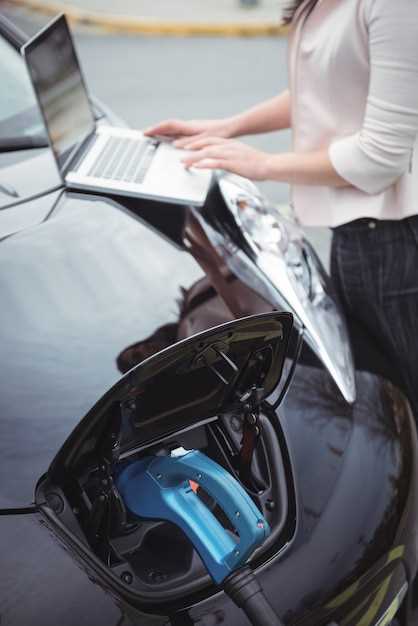
Hybrid cars – are they worth it long term?

The automotive industry is undergoing a significant transformation, with hybrid cars emerging as a prominent choice for environmentally conscious consumers. In this article, we will explore the long-term benefits of driving hybrid vehicles, emphasizing their advantages over traditional gasoline-powered cars in a comprehensive comparison.
One of the most notable benefits of hybrid cars is their remarkable fuel efficiency. Unlike conventional vehicles, hybrids use a combination of electric and gasoline power, leading to lower fuel consumption and reduced greenhouse gas emissions. This efficiency not only helps the environment but also translates into substantial savings for drivers over the years.
In addition to economic advantages, owning a hybrid car often provides long-term reliability and lower maintenance costs. These vehicles are designed with advanced technologies that can lead to fewer mechanical issues. Furthermore, the availability of government incentives and rebates for hybrid vehicle owners enhances their financial appeal, making them an attractive choice in the long run.
Cost Savings Over Time: Fuel and Maintenance Comparison

When considering the long-term benefits of driving hybrid cars, a critical factor is the cost savings associated with fuel and maintenance. Hybrid vehicles combine a gasoline engine with an electric motor, resulting in enhanced fuel efficiency compared to traditional gasoline-powered cars. This efficiency translates to reduced fuel expenses over time, especially for drivers who frequently navigate urban environments with heavy traffic. The comparison of fuel costs reveals that hybrid cars can achieve significantly higher miles per gallon (MPG), leading to substantial savings at the pump.
In addition to fuel savings, maintenance costs for hybrid vehicles tend to be lower in the long run. While initial maintenance may be slightly higher due to the complexity of the hybrid system, many hybrid cars require less frequent servicing in the areas of oil changes, brake replacements, and other regular maintenance tasks. For instance, regenerative braking technology in hybrids reduces wear on brake components, extending their lifespan and offering further savings. Consequently, the comparison of total maintenance costs over time indicates that hybrid cars can prove to be more economical than traditional vehicles.
Overall, the cumulative effect of lower fuel and maintenance costs makes hybrid cars a financially sound choice for consumers looking to invest in a vehicle that provides long-term savings. By evaluating these cost factors, drivers can better appreciate the economic advantages of hybrid technology.
Environmental Impact: Emission Reduction and Sustainability

Hybrid cars, often referred to as hybrids, play a crucial role in reducing harmful emissions compared to traditional gasoline vehicles. By combining an internal combustion engine with an electric motor, hybrids optimize fuel efficiency and minimize the carbon footprint associated with driving. This dual power source allows for lower greenhouse gas emissions, contributing significantly to the fight against climate change.
One of the most notable advantages of hybrids is their ability to operate on electric power during low-speed driving and idling. This feature dramatically decreases the amount of fuel consumed, further reducing tailpipe emissions. As a result, hybrids produce less nitrogen oxides and particulate matter, pollutants that have detrimental effects on air quality and public health.
Additionally, hybrids contribute to a more sustainable future. The shift towards fuel-efficient technologies encourages manufacturers to invest in cleaner production techniques and renewable energy sources. As the demand for hybrids increases, the automobile industry is incentivized to innovate, leading to advancements in battery technology and energy recovery systems that enhance overall efficiency.
Hybrids also promote sustainable practices through regenerative braking, a technology that recovers energy typically lost during braking and converts it into electricity. This process not only prolongs battery life but also decreases reliance on fossil fuels, fostering a more environmentally conscious transportation system.
Overall, the adoption of hybrid vehicles represents a significant step towards emission reduction and sustainability. By choosing hybrids, consumers contribute to a cleaner environment, supporting initiatives aimed at protecting our planet for future generations.
Resale Value and Market Trends for Hybrid Vehicles
Hybrid vehicles have garnered attention not only for their fuel efficiency and environmental benefits but also for their resale value. In direct comparison to traditional gasoline cars, hybrids tend to maintain a higher percentage of their original value over time. This is influenced by the growing consumer interest in eco-friendly technologies and government incentives promoting sustainable transportation.
Market trends indicate a steady increase in the demand for hybrid cars. As more consumers become environmentally conscious, the appeal of hybrids grows. This rising popularity contributes to a stronger resale market, making hybrid vehicles attractive to both initial buyers and potential resellers. The resale value is also affected by advancements in technology, leading to improved performance and features in newer models, which encourages buyers to invest in used hybrids.
Additionally, the availability of affordable electric vehicle alternatives has not significantly undermined the resale value of hybrids. Instead, it has led to a comparison of hybrids and EVs, often favoring hybrids for consumers who may require a longer driving range without the need for frequent recharging. The market response reflects this trend, with many dealerships adapting their inventories to include more hybrid options, further enhancing resale prospects.
In conclusion, the resale value and market trends for hybrid vehicles highlight a positive outlook. As consumer preferences shift towards greener choices, the comparative advantage of hybrids in terms of resale value positions them as a savvy investment. With continued technological advancements and growing support for sustainable transportation, the resale potential of hybrid vehicles is likely to remain robust into the future.